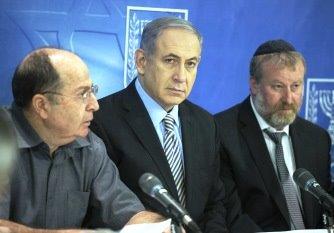Publications
INSS Insight No. 588, August 13, 2014

Over the first weekend of August 2014, it became clear once again that Hamas feels it has nothing to lose and that it is prepared to resume the armed conflict in order to force Egypt and Israel to hand it a significant achievement: lifting the Gaza blockade, opening the border crossings, and constructing a seaport. Since the eruption of the current conflict, Hamas has been willing to negotiate under fire, because it realizes that it has no bargaining chips at the negotiating table. Its arsenal contains only the ability to cause damage to all the parties involved, and in particular, Israel.
The manner in which the negotiations are conducted in Cairo, under Egyptian auspices and with the mediation of the General Intelligence Directorate, has demonstrated to Hamas the depth of its isolation. It must contend with Egypt and Israel, which control the “gates” to Gaza. Neither one is prepared to allow Hamas the semblance of success, which would lead to the rehabilitation of its status and reinforce its control over the Gaza Strip. In addition, Hamas is participating as part of a Palestinian delegation led by the Palestinian Authority (PA) — the same Palestinian Authority, under Mahmoud Abbas, with which it is competing for hegemony and control of the Palestinian camp. Hamas is frustrated because Egypt and Israel have taken a firm stand on including the PA in any solution to Gaza, demanding the deployment of PA security forces at the Gaza border crossings and along the border between Gaza and Egypt, and designating the PA as responsible for the rehabilitation of Gaza. Moreover, even the Arab world is not extending a helping hand: Hamas' two patrons, Qatar and Turkey, have been completely excluded from the negotiations. So what is left for Hamas? To conduct negotiations under fire and thus to continue to exert pressure to attain the strategic changes it so desperately needs.
Some seek a military operation that will bring Hamas to its knees and cause it to concede and accept Egypt’s ceasefire terms. Thus far, Israel has attained a number of achievements through Operation Protective Edge: Gaza's terrorist infrastructures were destroyed, particularly rocket production systems, storage sites, headquarters, and homes of terrorist operatives; over 600 Hamas operatives were killed; only 1/3 of the missile and rocket arsenal remains; 32 offensive tunnels were destroyed; Iron Dome provided effective active protection for Israel's residents; the Israeli home front demonstrated resilience; Israel endured minimal economic damage; the strategic alliance between Israel and the regime of Egypt's el-Sisi was consolidated, and the Arab world exhibited understanding toward Israel while it struck Hamas in Gaza.
However, the operation bears a number of negative implications for Israel: Hamas survived the campaign, a fact that has strengthened it; Hamas did not lose the desire, motivation, or ability to continue firing rockets and mortar shells at the Israeli home front; Hamas’ military leadership was not damaged, nor was it deterred; Israel’s international image was tarnished following the deaths of hundreds of uninvolved civilians and massive destruction in urban areas in the Gaza Strip; Israeli residents living near the Gaza Strip refuse to return home. In conclusion, the “resistance” led by Hamas is alive and kicking.
e. Establishing regional cooperation with Egypt, Israel, Jordan, Saudi Arabia, and the United Arab Emirates, supporting broad objectives and interests beyond reshaping and rebuilding the Gaza Strip, such as stopping Islamist jihadist elements from gaining strength and spreading throughout the Middle East.
Hamas is the main barrier to promotion of these objectives, as it must find a way to explain the current tragic situation to Gaza’s residents and compensate them for it. As long as Hamas does not present the Gaza population with a tangible achievement in the form of a lifted economic blockade, it will cling to resistance and fighting, out of lack of choice. As such, we are at a dead end. At the negotiating table, Egypt and Israel are not prepared to grant Hamas any compensation for terrorism. They seek to weaken and neutralize the organization, and are working to create the conditions to replace it with the PA.
c. Engaging in a war of attrition as a result of continued firing from Gaza, matched by determination and patience from Israel, believing that it has the ability to erode Hamas’ power, weaken it, and bring about a process of internal collapse of the organization. In parallel, a regional and international coalition to return the PA to the Gaza Strip would be established.
As the situation unfolds and if Israel maintains its policy of weakening Hamas, then the more relevant option will be a policy based on attrition. Attrition need not be the exclusive weapon of the weaker party. Israel could also make use of this course of action, given its superiority in regard to resources, its ability to provide a satisfactory protective solution, and its ability to erode Hamas while abstaining from meeting its demands or easing restrictions at the border crossings and in fact while increasing restrictions on entry of goods and the energy supply to Gaza. This would be done through close coordination with Egypt and, if possible, with the PA as well. As a result, Hamas may realize that it is in its best interest to comply with Egypt’s terms for a ceasefire and allow the PA's integration into the Gaza Strip.


